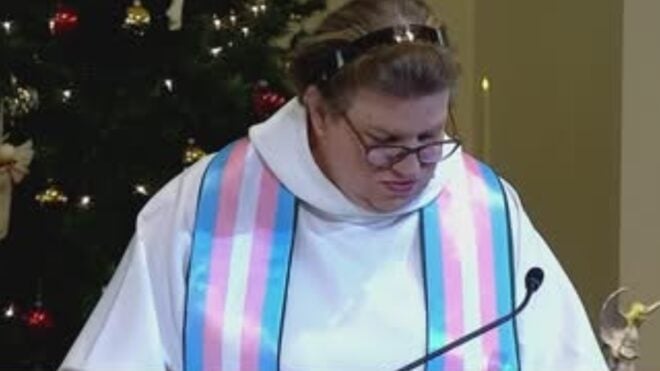
College sports mean a lot to people across the country. It's more than a love for a hometown team or an alma mater. Sports present an opportunity to bond with your family and with your community and flex that competitive muscle. It's for that reason that so many were disappointed to learn that many were opting out of or postponing their seasons.
As those decisions trickled in, the one that arguably hurt most for sports fans was that of the Big Ten Conference. The conference cited that the health risks were too great to move forward with the 2020-2021 fall sports season.
On Monday, Dr. Wayne Sebastianelli, Penn State's director of athletic medicine, shared a bit of information that got people's attention fast. Dr. Sebastianelli commented on the link between COVID-19 and myocarditis, particularly in Big Ten athletes. Centre Daily Times reported that he said about 30% to 35% of Big Ten athletes who tested positive for COVID-19 appeared to have myocarditis, according to cardiac MRI scans. Myocarditis is an inflammation of the heart muscle that can be fatal if left unchecked.
People were upset and concerned by the implications of the data. Now Dr. Sebastianelli is providing more context to clarify his remarks. His hope is to ease the concerns of Big Ten athletes, their loved ones, and their fans.
Dr. Wayne Sebastianelli, Penn State's director of athletic medicine, caused a stir at a State College Area School District board of directors meeting on Monday. Dr. Sebastianelli alarmed many with comments about cardiac MRI scans in Big Ten athletes who tested positive for COVID-19. He said that approximately one-third of the athletes appeared to have myocarditis. Myocarditis is an inflammation of the heart muscle that can be fatal if left unchecked.
"When we looked at our COVID-positive athletes, whether they were symptomatic or not, 30 to roughly 35 percent of their heart muscles (were) inflamed," Dr. Sebastianelli said.
"And we really just don't know what to do with it right now. It's still very early in the infection. Some of that has led to the Pac-12 and the Big Ten's decision to sort of put a hiatus on what's happening."
"You could have a very high-level athlete who's got a very superior VO2 max and cardiac output who gets infected with COVID and can drop his or her VO2 max and cardiac output just by 10 percent, and that could make them go from elite status to average status," Dr. Sebastianelli said.
"We don't know that. We don't know how long that's going to last. What we have seen when people have been studied with cardiac MRI scans — symptomatic and asymptomatic COVID infections — is a level of inflammation in cardiac muscle that just is alarming."
Dr. Sebastianelli's comments came after the Big Ten postponed its football season in early August. Rumors of discussions regarding myocarditis at the meetings predating the decision swirled. While the organization offered no direct comment on the matter, Big Ten Commissioner Kevin Warren spoke more broadly about health concerns.
"The mental and physical health and welfare of our student-athletes has been at the center of every decision we have made regarding the ability to proceed forward," he noted.
"As time progressed and after hours of discussion with our Big Ten Task Force for Emerging Infectious Diseases and the Big Ten Sports Medicine Committee, it became abundantly clear that there was too much uncertainty regarding potential medical risks to allow our student-athletes to compete this fall," he continued.
"We know how significant the student-athlete experience can be in shaping the future of the talented young women and men who compete in the Big Ten Conference. Although that knowledge made this a painstaking decision, it did not make it difficult."
"While I know our decision today will be disappointing in many ways for our thousands of student-athletes and their families, I am heartened and inspired by their resilience, their insightful and discerning thoughts, and their participation through our conversations to this point," he concluded.
"Everyone associated with the Big Ten Conference and its member institutions is committed to getting everyone back to competition as soon as it is safe to do so."
A week later, Kevin shared an open letter elaborating on his statement.
In the letter, Kevin discussed cardiomyopathy and myocarditis:
"There is simply too much we do not know about the virus, recovery from infection, and longer-term effects. While the data on cardiomyopathy is preliminary and incomplete, the uncertain risk was unacceptable at this time."
The inexact information in Kevin's comments, coupled with Dr. Sebastianelli's comments, caused a lot of concern within the student-athlete community, their families, and their fans. On Thursday, a statement was issued via Penn State Health offering clarity into Dr. Sebastianelli's comments.
"Dr. Sebastianelli was asked by a local school board to discuss high school preparations and precautions for holding sporting events during the pandemic and the potential impact of COVID-19 on the health of student-athletes," the statement, released to ESPN, began.
"During his discussion with board members, he recalled initial preliminary data that had been verbally shared by a colleague on a forthcoming study, which unbeknownst to him at the time had been published at a lower rate," it continued.
"The research was not conducted by Dr. Sebastianelli or Penn State. Dr. Sebastianelli wishes to clarify this point, and apologize for any confusion."
The statement also made sure to put the minds of Penn State student-athletes at rest.
"Additionally, some have inferred his comments may have been related directly to Penn State student-athletes. At this time, there have been no cases of myocarditis in COVID-19 positive student-athletes at Penn State. For questions related to the myocarditis study, please contact the study investigators."
Many people were angry after reading the clarification. Some pointed out that it was more of a retraction than anything else and called for the doctor's resignation.
It was frustrating for people who want to see sports come back but know that the medical data has to drive the decisions. If incorrect data is being used to make determinations, it's also impacting the community around it.
Others feel that the doctor is being given too hard a time. This is a new illness with evolving statistics, so people speaking off the cuff stand a good chance of speaking incorrectly. Everyone's doing the best they can to err on the side of safety.




